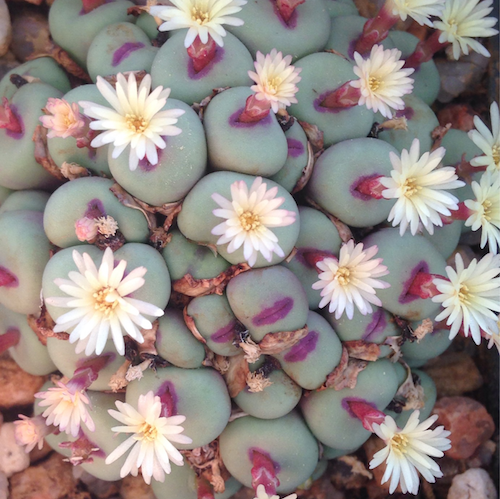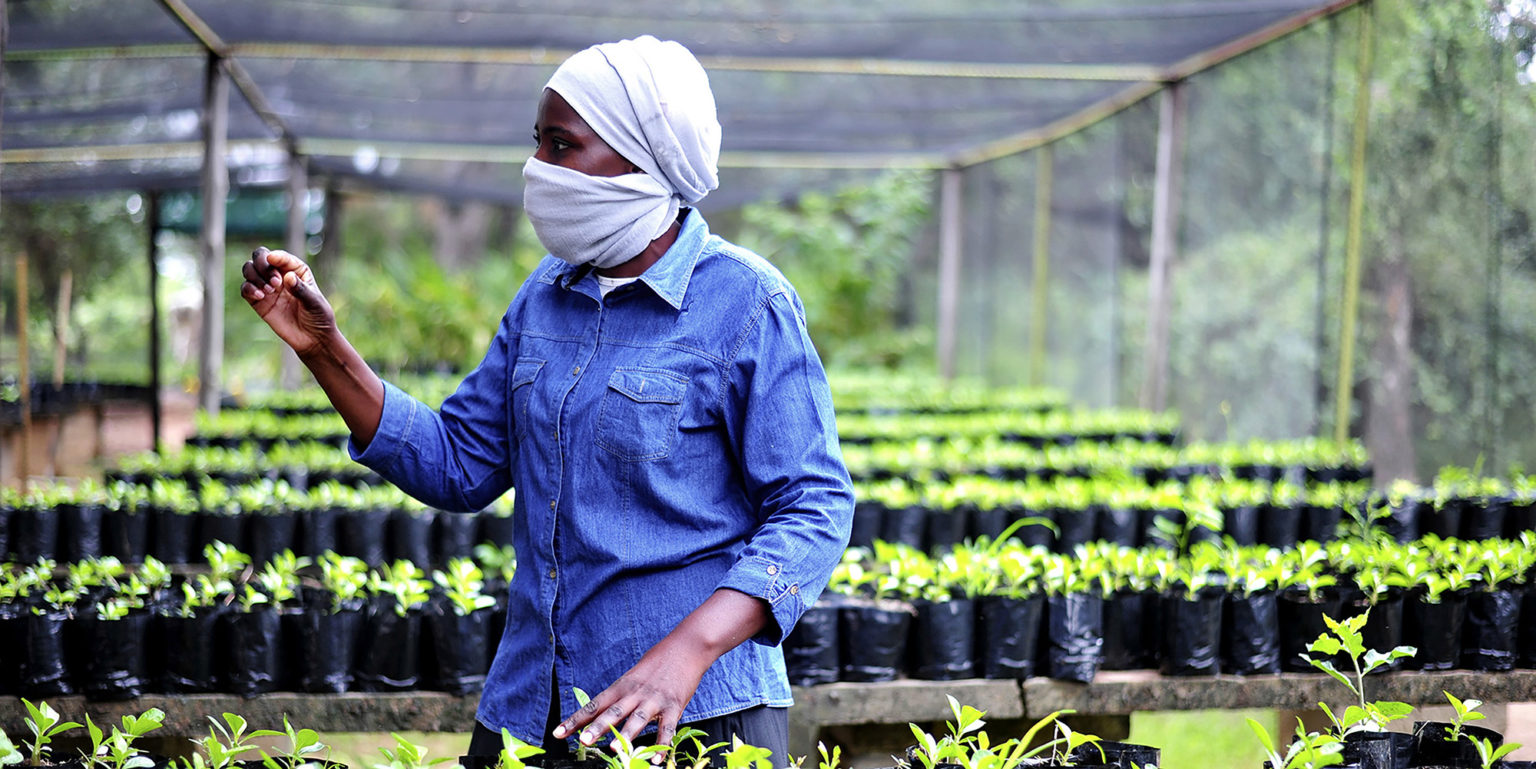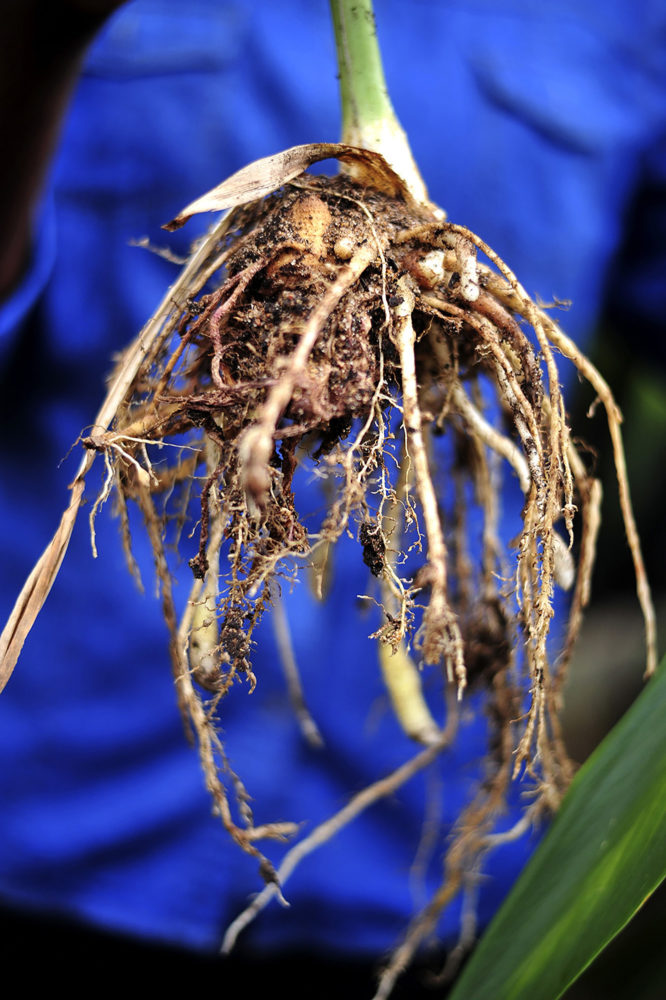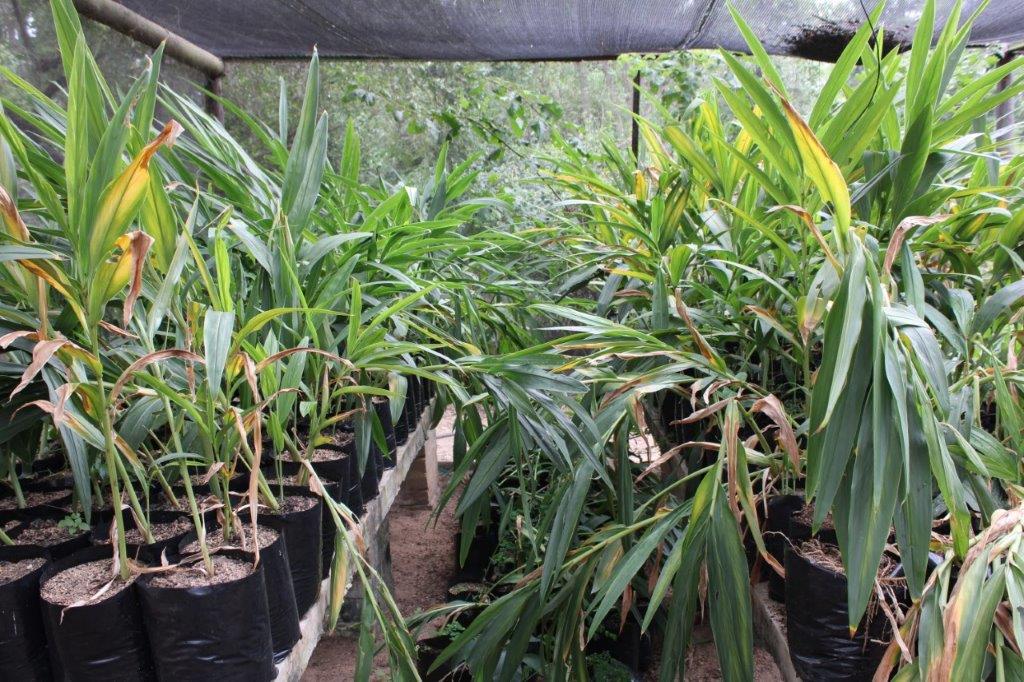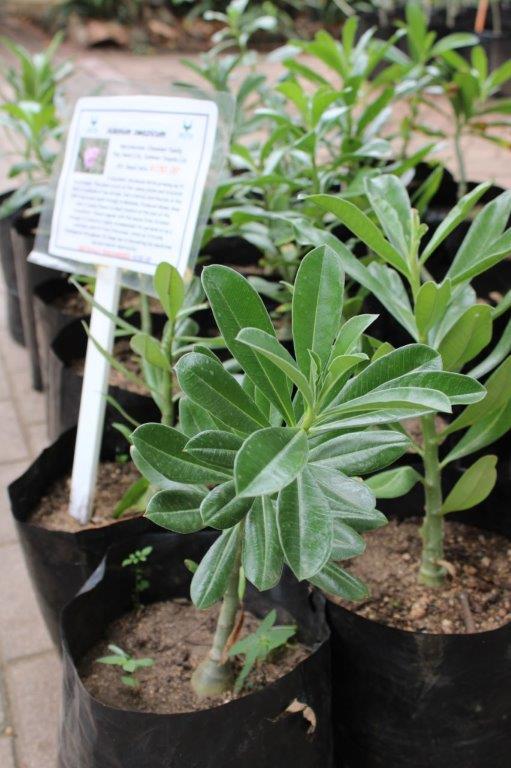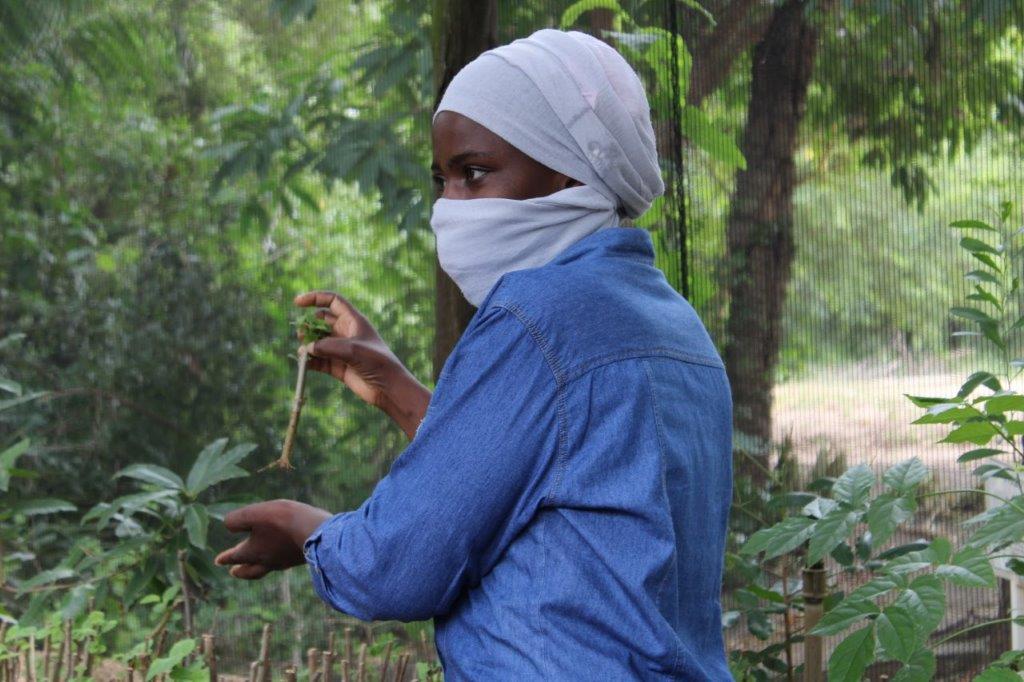B(l)ooming ecological crime ravaging SA exposed after three Saudi Arabians caught stealing 1.6m seeds and flora
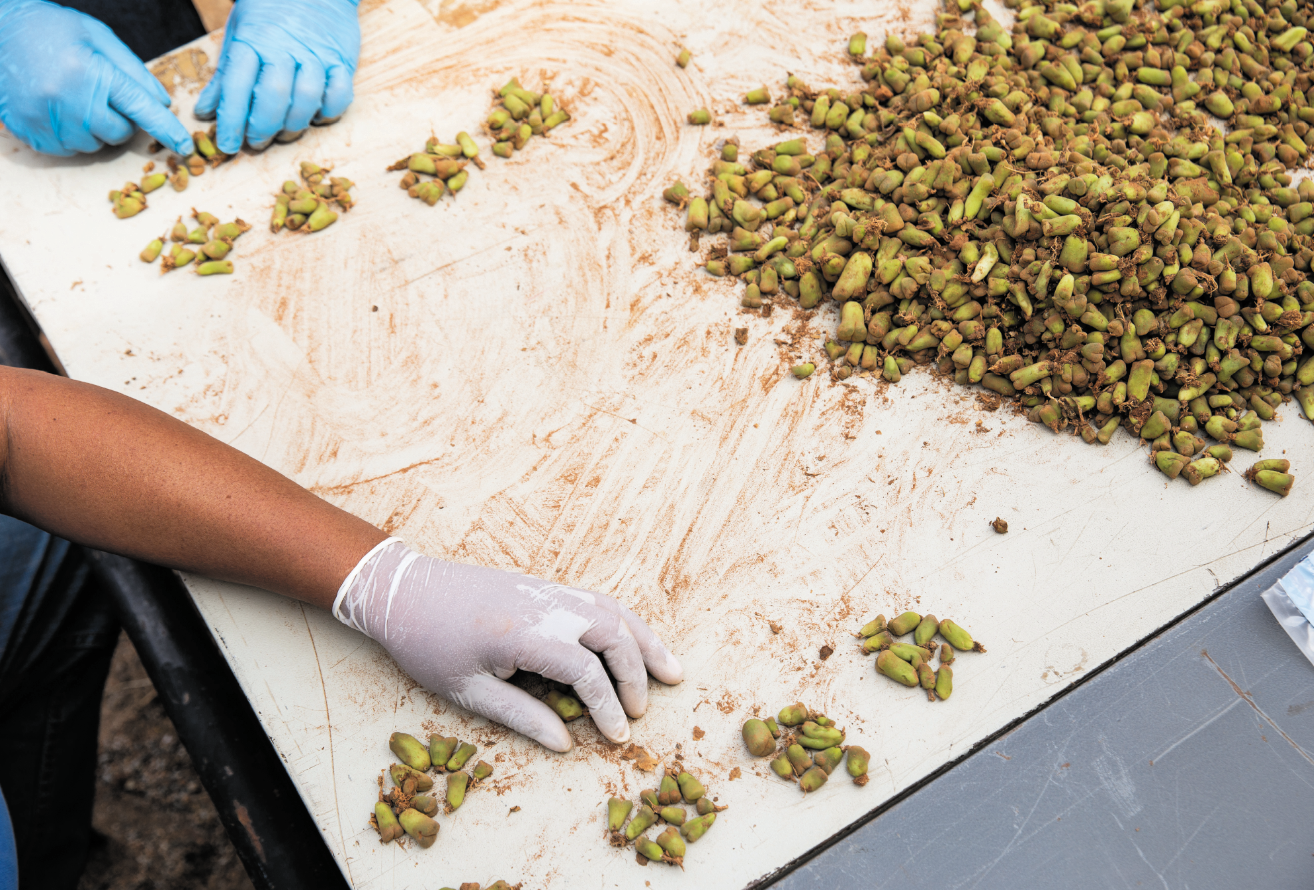 The police’s Springbok stock theft and endangered species unit confiscated more than 5,500 conophytum plants in February this year. (Photo: Supplied)
By Caryn Dolley | 26 Nov 2022
The police’s Springbok stock theft and endangered species unit confiscated more than 5,500 conophytum plants in February this year. (Photo: Supplied)
By Caryn Dolley | 26 Nov 2022
The case is yet another matter pointing to a time-sensitive crime crisis ravaging critical ecosystems in South Africa. Prosecuting authorities have warned that criminals targeting plants pose an immense and potentially irreversible problem. Some plants, like succulents, that are stolen and retrieved by police cannot simply be returned to the wild.
____________________________________________________________________________________________________
In October, three individuals from Saudi Arabia – a Ministry of Islamic Affairs employee, a financial analyst and a former soldier – touched down in South Africa. Within less than a month, all three were convicts in this country, where they had illegally picked more than 1.63 million seeds and flora items from areas around the west coast. The trio – Bedah Abdulrahman Albedah, Mohand Abulnaser Althenaian and his father Abdulnaser Mohammed Althenaian – were caught and pleaded guilty to related crimes.
Seeds stolen for export
It was suspected that they planned to “export” the seeds to a farm in Saudi Arabia. Instead of this plan proceeding smoothly, the trio arrived in South Africa, became the centre of legal proceedings, were forced to pay a R2-million fine and agreed to leave this country.
They did so as criminals. The action played out against them in South Africa in October, the same month that President Cyril Ramaphosa and several Cabinet ministers visited the convicted trio’s home country, Saudi Arabia.
According to a Presidency statement, during Ramaphosa’s state visit there, “discussions would focus on export market opportunities for South African produce and on South Africa as an investment destination”. This is ironic, given suspicions that the Saudi three wanted to smuggle stolen seeds from South Africa to their home country.
Flora and uncut diamonds
The case involving Albeda and the Althenaian duo is yet another matter pointing to a time-sensitive crime crisis ravaging critical ecosystems in South Africa. Prosecuting authorities have warned that criminals targeting plants pose an immense and potentially irreversible problem. Some plants, like succulents, that are stolen and retrieved by police cannot simply be returned to the wild.
DM168 has previously reported that if it is known where a plant was stolen from, and if conditions are suitable, it can be replanted using special techniques, only if security in that area was ensured.
At the end of October, in another crackdown on plant crimes, West Coast police were tipped off about a Ford Fiesta travelling from the Western Cape town of Clanwilliam with indigenous plants being smuggled in it. The vehicle was stopped in another Western Cape town, Citrusdal, and 3,491 plants were found. Four men were arrested for illegally having the flora.
In August, in another crackdown near Clanwilliam, a vehicle was stopped and searched – plants worth R400,000 plus five uncut diamonds were discovered in an occupant’s luggage. The occupant, who had no permit for the plants, was arrested.
Near extinction
Earlier this year, DM168 reported that plant poachers, including fugitives, repeat offenders and crooks who operate internationally, were probably behind the near extinction of some rare succulent species as they continued stealing hundreds of thousands of them.
Poachers were targeting the Succulent Karoo Biome, which stretches from Lüderitz in Namibia, across South Africa’s west coast and into the Western Cape’s Little Karoo. It is one of only two arid hot spots in the world where several specific plant species are found.
South African National Biodiversity Institute spokesperson Nontsikelelo Mpulo told DM168 in April that, over three years, the amount of material confiscated in such crimes had increased by more than 250%.
“[It] is likely that over 1.5 million plants have been removed from the wild in the past three years,” she said.
“It is very likely that some species have already been poached to extinction in the wild because the number of confiscated poached plants being housed at secure locations for court cases often exceed[s] the previously estimated total wild population size.”
Drastic plant crime spike
Now Advocate Aradhana Heeramun, who prosecuted the Saudi Arabia-linked case, has warned that the crisis has escalated.
“Since the beginning of 2022, there has been a drastic spike [in] these offences,” she said. “The illegal trade in wild flora and fauna is one of the largest illegal activities in the world, along with the illegal drug trade, illegal weapons smuggling and human trafficking. It is essential to recognise that environmental crime, unlike many other forms of crime, is a time-critical issue. As our natural resources are finite, lack of action may have permanent consequences.”
Heeramun previously described the plant poaching crisis as “an ecological tragedy”.
DM168 understands that authorities are pushing for severe legal action to be taken against plant poachers. In the case involving the three individuals from Saudi Arabia, within less than a month after touching down in South Africa, they contributed to the plant crime crisis and were convicted.
 (Photos: iStock, Eric / Flickr, Mitchell & Dawn / Flickr)
Trip planned around plant theft
(Photos: iStock, Eric / Flickr, Mitchell & Dawn / Flickr)
Trip planned around plant theft
According to information provided by the Western Cape’s National Prosecuting Authority, the trio said they arrived in South Africa on 7 October.
They hired a vehicle at Cape Town International Airport.
“The entire trip was planned with the specific purpose of searching for and acquiring flora,” the prosecuting authority information said. They chose to stay in locations known for flora. The trio later met four others who were set to work with them.
According to the prosecuting authority information: “The purpose of their visit was to export the flora to a farm in Saudi Arabia.
“After spending days acquiring the flora, they departed from the guesthouse where they were booked in.”
Western Cape police spokesperson Warrant Officer Joseph Swartbooi said that after a night in a guesthouse in the Northern Cape, they left and planned to head to Cape Town. But police officers in the Western Cape were tipped off about this.
“They spotted the suspicious vehicle on the N7 highway driving at a high speed near Bitterfontein,” Swartbooi said. Bitterfontein is a village on the west coast.
The car was searched while police officers and CapeNature officials questioned the men, who could all speak English. Witbooi said “a number of bags containing seeds” were confiscated.
Based on information that emerged in legal proceedings, a total of 1,633,386 flora items were seized – this included more than 900,000 plants known as Felicia.
 CapeNature ranger Hilton Bocks checks plants in Knersvlakte Nature Reserve in the Western Cape, one of the richest and most diverse succulent regions in the world. (Photo: Ashraf Hendricks)
Guilty as charged
CapeNature ranger Hilton Bocks checks plants in Knersvlakte Nature Reserve in the Western Cape, one of the richest and most diverse succulent regions in the world. (Photo: Ashraf Hendricks)
Guilty as charged
Not even a month after they touched down in South Africa, the three accused entered into a plea and sentencing agreement with the state on 1 November in the Vredendal Regional Court. Albedah and the Althenaian father and son claimed that the flora, which was found concealed in their luggage, belonged to them. This meant that criminal charges relating to flora against the four other individuals, whom they had roped in to work with them, were withdrawn.
The trio from Saudi Arabia pleaded guilty to money laundering, possessing flora without the necessary documentation and contravening a section of Nature Conservation Ordinance No 19 of 1974. They were each sentenced to an effective seven years in jail.
The sentences were suspended for five years on condition that they did not commit the same crimes in that period.
R2m fine for ‘inexcusable conduct’
Abdulnaser Althenaian and Albedah also had to pay R2-million to the Criminal Assets Recovery Account and Western Cape Nature Conservation Board. Of the accused, Heeramun said: “Their conduct is inexcusable. They are all educated individuals who earn a decent living and have families.
“Abdulnaser Mohammed Althenaian (50) served in military defence. His son, Mohand Abulnaser Althenaian (25), is a financial analyst and Bedah Abdulrahman Albedah (40) is employed in the Ministry of Islamic Affairs.” All three convicts undertook to leave South Africa within 48 hours.
There have been other cases that point to the international extent of plant poaching via this country.
Byungsu Kim, a succulent smuggler from South Korea, was previously convicted of related charges in both South Africa and the US. In January, he was sentenced in the US to two years in jail. Prior to that, in April 2020, US citizen Kalman Kaminar, who was linked to a nursery in Los Angeles, was sentenced in Cape Town to two years in jail for illegally having succulents. This sentence was suspended for five years.
‘We must act now’
Earlier this month, Director of Public Prosecutions in the Western Cape Nicolette Bell, reacting to the Saudi-linked case, said her office was trying to tackle the plant poaching crisis. She said the country’s biodiversity had to be protected.
Bell added: “South Africa has a national as well as an international obligation to address wildlife trafficking. This is due to several international multilateral environmental agreements, which oblige South Africa to conserve its natural resources and ensure that international trade in listed wildlife species does not threaten their survival in the wild.
“There is a duty upon all of us to act now to ensure that our environmental integrity is protected.”
Why we should care
- Some plant species have probably already been poached to extinction. In just three years, it is likely that more than 1.5 million plants were removed from the wild and, in a month this year, more than 1.6 million seeds were stolen from the west coast.
- In 2018, the cumulative age of seized poached plants was at least 44,000 years.
- The South African National Biodiversity Institute (Sanbi) says plant poaching causes soil disturbance, and this can “destroy delicate organic crusts that characterise the region”.
- Sanbi further says that “losing any species from the environment affects all other species within the ecosystem and leads to ecosystem function deterioration”.
- Certain areas where succulents grow attract tourists and, if these plants become extinct, it will mean fewer tourists.
- This will harm the hospitality industry and lead to job losses.
DM168
